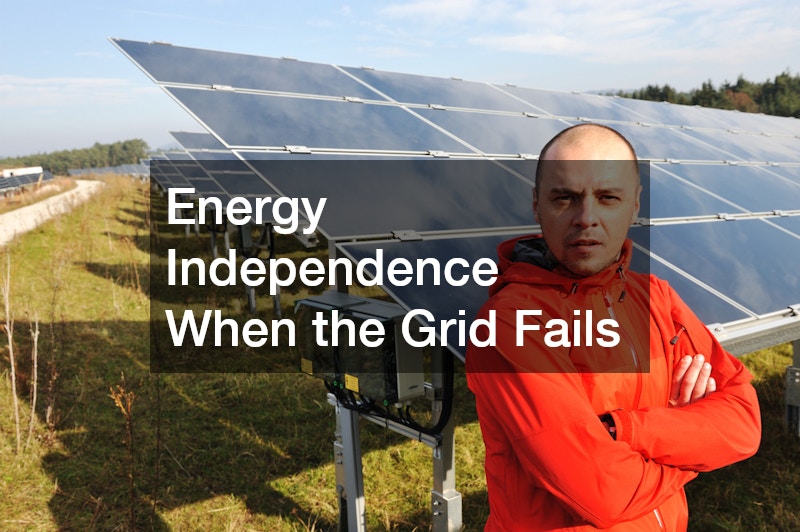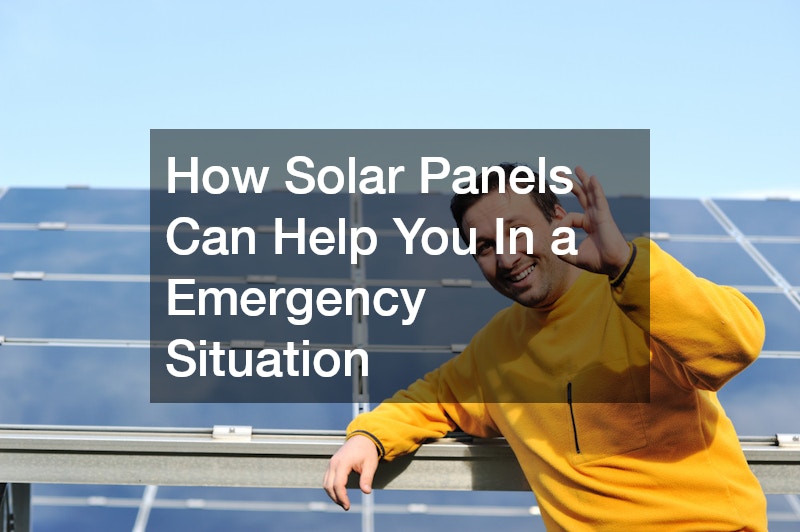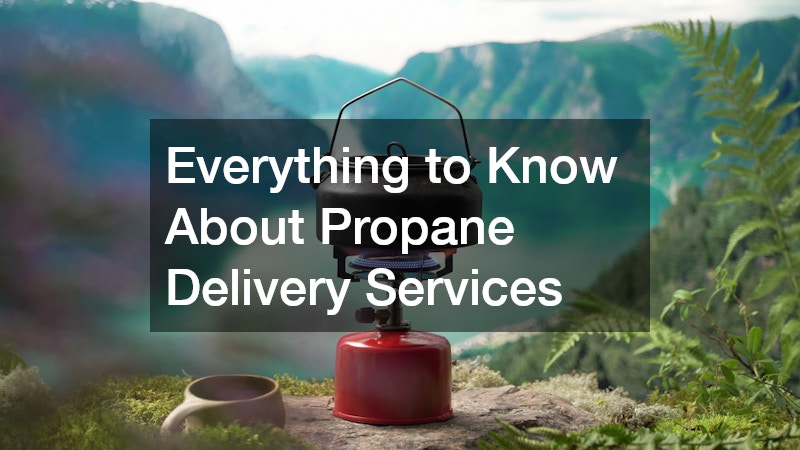When the unexpected strikes—be it a blackout, storm, bushfire or grid failure—most households are left vulnerable without power. In these moments, access to a reliable energy source becomes more than just a convenience; it becomes a lifeline. Solar panels offer a practical solution to energy independence and can be the difference between safety and uncertainty in an emergency situation. Whether you’re facing extreme weather, a regional outage or supply chain disruptions, solar systems provide the security of electricity when it matters most.
Energy Independence When the Grid Fails
Australia is no stranger to natural disasters. From cyclones in Queensland to bushfires in Victoria, extreme weather can lead to widespread power outages that leave homes in darkness for hours or even days.
Relying solely on the national grid during emergencies puts households at risk. That’s where solar panels come into play.
Solar panels paired with a battery storage system allow you to generate and store your own electricity, making your home more resilient. During the day, panels continue to produce energy even if the grid goes down. If you have a battery installed, that energy can be stored and used during the night or in low-sunlight conditions. This independence allows critical appliances such as refrigerators, lights, medical devices and communication systems to stay operational when traditional power sources fail.
Ensuring Access to Communication and Information
In an emergency, staying informed and connected is essential. Access to updates from emergency services, the Bureau of Meteorology and local alerts can provide the information needed to protect your household and make informed decisions. Devices like radios, mobile phones and internet modems depend on power to operate. Without electricity, communication can be cut off, leaving you isolated.
Solar energy systems help maintain these vital connections. A properly maintained setup ensures continuous electricity supply to charge devices and power small communication hubs. It may seem simple, but a charged phone or a working Wi-Fi router can become the most valuable tools in a disaster scenario. With consistent solar panel maintenance, your system will function efficiently when you need it most, avoiding downtime caused by dust, corrosion or degraded components.
Keeping Food and Medicine Safe
During emergencies, especially in summer, refrigeration becomes a crucial concern. Extended blackouts may spoil food, affect medication that requires cooling and create unnecessary health risks. Powering your refrigerator and freezer with stored solar energy prevents food waste and protects temperature-sensitive medications like insulin.
Even limited access to solar energy can make a large impact. By prioritising the energy supply to your fridge, fans or air purifiers, your household can remain safe and liveable. The effectiveness of this backup system heavily depends on regular panel maintenance. A clean and well-serviced solar array maximises energy output, ensuring your battery remains charged throughout extended emergencies.
Powering Essential Home Functions
Beyond food and communication, solar energy can support other important systems during a crisis. If your property uses an electric water pump for drinking water or fire suppression, uninterrupted access to power is vital. Likewise, electric gates, security systems and garage doors all rely on a stable power supply to operate. A sudden loss of power can impact not only comfort but safety as well.
Solar panels and batteries, when correctly maintained, ensure these systems continue functioning. Homeowners who prioritise solar panel maintenance not only protect their long-term investment but also increase the reliability of their emergency power reserve.
Reducing Strain on Emergency Services
In large-scale events where entire regions are affected, emergency services are often stretched thin. Having your own power source allows you to manage your situation more independently, reducing your reliance on overwhelmed support networks. Whether it’s using solar-powered lights to navigate your home, running fans to prevent heat exhaustion or keeping communication lines open, you’re in a stronger position to care for yourself and your family.
This self-reliance becomes part of your community’s resilience. Households with solar power and storage can check in on neighbours, offer assistance and, in some cases, even share power if microgrid technology is available. It’s one of the most proactive ways to prepare for unpredictable events in a rapidly changing climate.
The Role of Proper Solar Panel Maintenance
A solar energy system is only as reliable as the condition it’s kept in. Like any electrical setup, it requires upkeep to ensure peak performance, especially during demanding conditions. Without regular inspections, faults can go unnoticed until it’s too late.
Many manufacturers recommend servicing your solar system annually, although more frequent checks may be necessary in areas with heavy dust, salt or wildlife activity. A well-maintained system doesn’t just provide more power—it provides peace of mind that your backup energy is available when it’s most critical.
Solar panels are often seen as a way to cut energy bills and reduce carbon footprints, but their role in emergency preparedness is equally important. By providing independent energy, supporting vital systems and ensuring communication during crises, solar technology empowers homeowners to face unpredictable challenges with confidence.
.



